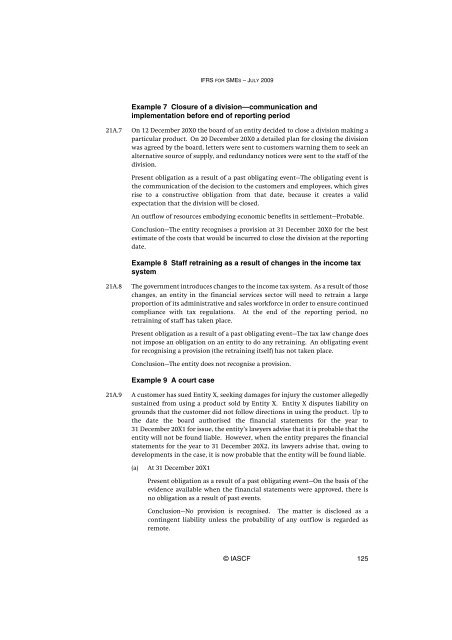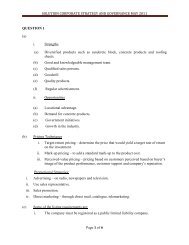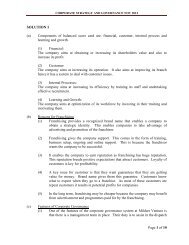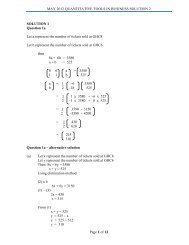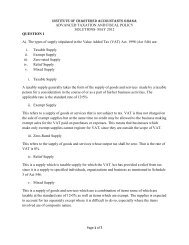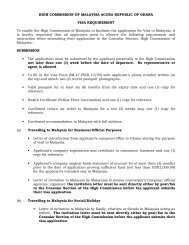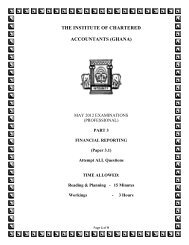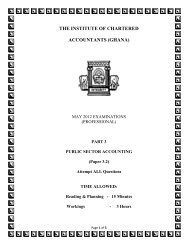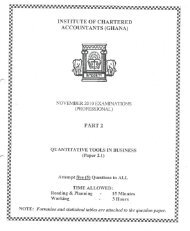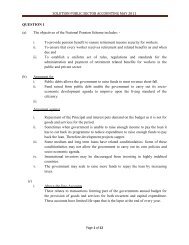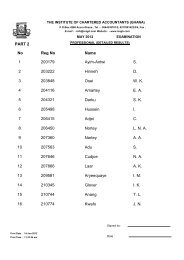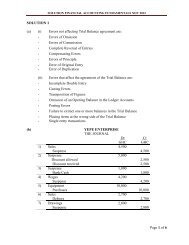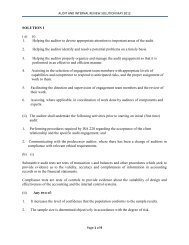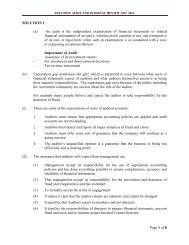(IFRS) for Small and Medium-sized Entities (SMEs)
(IFRS) for Small and Medium-sized Entities (SMEs)
(IFRS) for Small and Medium-sized Entities (SMEs)
Create successful ePaper yourself
Turn your PDF publications into a flip-book with our unique Google optimized e-Paper software.
<strong>IFRS</strong> FOR SMES – JULY 2009Example 7 Closure of a division—communication <strong>and</strong>implementation be<strong>for</strong>e end of reporting period21A.7 On 12 December 20X0 the board of an entity decided to close a division making aparticular product. On 20 December 20X0 a detailed plan <strong>for</strong> closing the divisionwas agreed by the board, letters were sent to customers warning them to seek analternative source of supply, <strong>and</strong> redundancy notices were sent to the staff of thedivision.Present obligation as a result of a past obligating event—The obligating event isthe communication of the decision to the customers <strong>and</strong> employees, which givesrise to a constructive obligation from that date, because it creates a validexpectation that the division will be closed.An outflow of resources embodying economic benefits in settlement—Probable.Conclusion—The entity recognises a provision at 31 December 20X0 <strong>for</strong> the bestestimate of the costs that would be incurred to close the division at the reportingdate.Example 8 Staff retraining as a result of changes in the income taxsystem21A.8 The government introduces changes to the income tax system. As a result of thosechanges, an entity in the financial services sector will need to retrain a largeproportion of its administrative <strong>and</strong> sales work<strong>for</strong>ce in order to ensure continuedcompliance with tax regulations. At the end of the reporting period, noretraining of staff has taken place.Present obligation as a result of a past obligating event—The tax law change doesnot impose an obligation on an entity to do any retraining. An obligating event<strong>for</strong> recognising a provision (the retraining itself) has not taken place.Conclusion—The entity does not recognise a provision.Example 9 A court case21A.9 A customer has sued Entity X, seeking damages <strong>for</strong> injury the customer allegedlysustained from using a product sold by Entity X. Entity X disputes liability ongrounds that the customer did not follow directions in using the product. Up tothe date the board authorised the financial statements <strong>for</strong> the year to31 December 20X1 <strong>for</strong> issue, the entity’s lawyers advise that it is probable that theentity will not be found liable. However, when the entity prepares the financialstatements <strong>for</strong> the year to 31 December 20X2, its lawyers advise that, owing todevelopments in the case, it is now probable that the entity will be found liable.(a)At 31 December 20X1Present obligation as a result of a past obligating event—On the basis of theevidence available when the financial statements were approved, there isno obligation as a result of past events.Conclusion—No provision is recognised. The matter is disclosed as acontingent liability unless the probability of any outflow is regarded asremote.© IASCF 125


